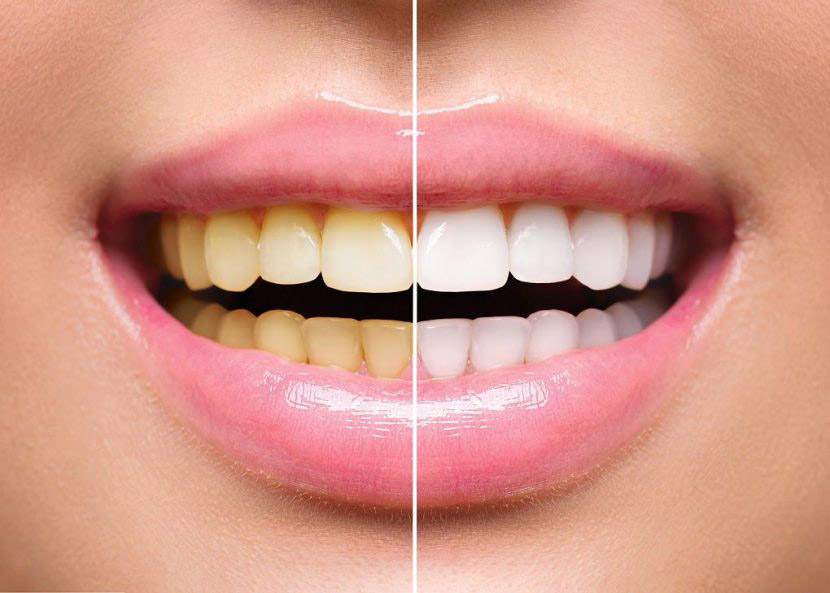In most cases, the natural colour of teeth is within a range of light grayish-yellow shades. Teeth naturally darken with age and their appearance can be affected by the accumulation of surface stains.
In addition, the perception of the colour of teeth is severely affected by skin tone and make-up. People with darker skin or who use dark makeup will look like they have brighter teeth.
Although teeth are not naturally meant to be completely white, many Canadians want a brighter smile. Responding to this desire, a wide range of “whitening” options has become available to consumers. These products fall into two main categories: surface whiteners and bleaches.

In-office whitening
The procedure usually takes 30 to 90 minutes, and one to three visits to the dental office. A protective gel, shield or rubber dam is used to protect your gums from the bleaching agent which is usually a form of hydrogen peroxide. A bleaching agent is then applied or “painted” onto your teeth and heat or high-intensity lights used to enhance the whitening process.
At home whitening
This is usually done by applying a bleaching solution to a custom-formed mouthguard that is left in the mouth for a specified time.
Whitening toothpastes
All toothpastes remove surface stains through the action of mild abrasives. Whitening toothpastes contain special chemicals or polishing agents that have additional surface-stain removing properties, but don’t alter the intrinsic colour of the teeth.
It’s important to know that not everyone’s teeth will “whiten” to the same degree. It depends on the number of teeth involved, the severity of discolouration and the natural colour of your teeth. The perception of the colour of your teeth is also influenced by skin tone.